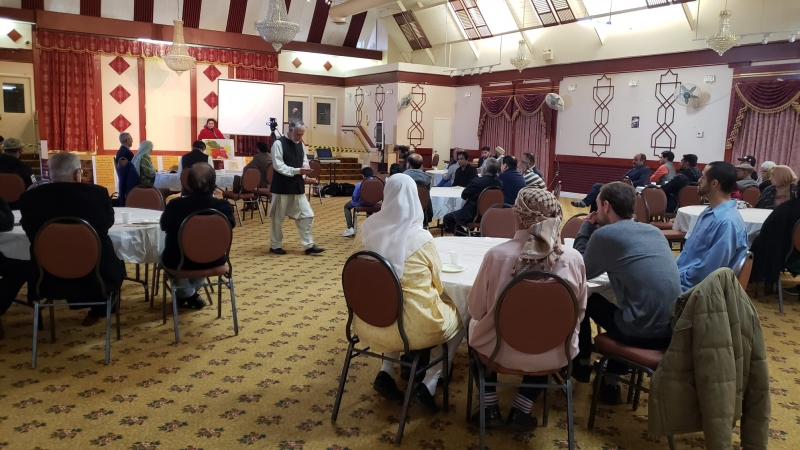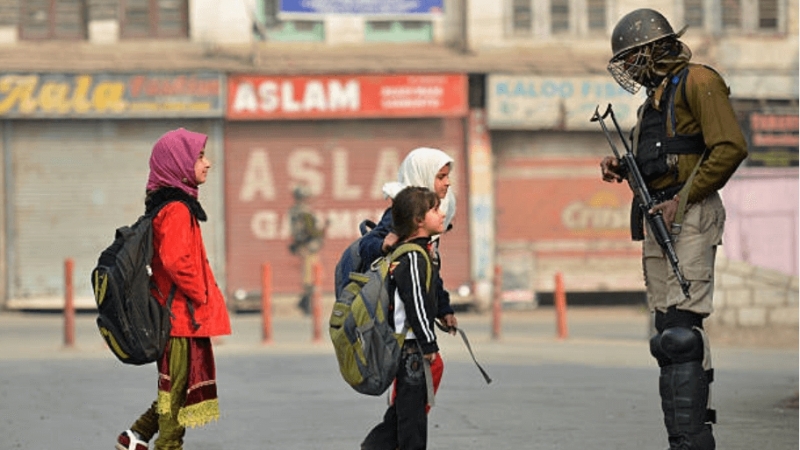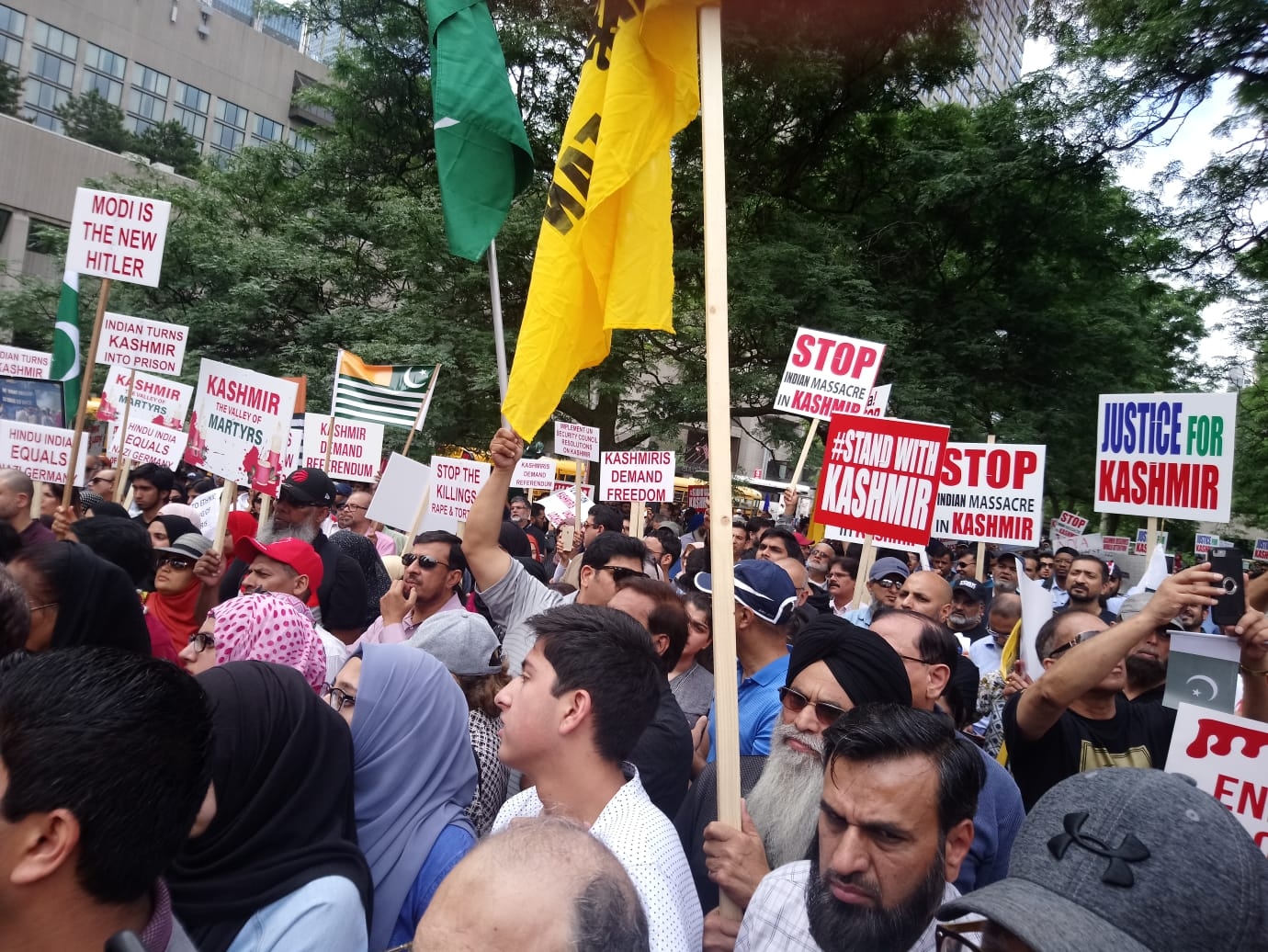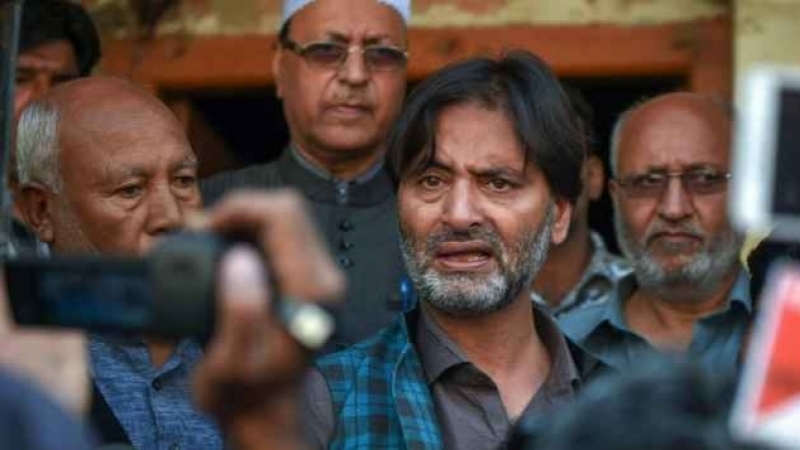India-occupied Kashmir, four years later
Empowering Weak & OppressedCrescent International
Muharram 30, 1445 2023-08-17
Daily News Analysis
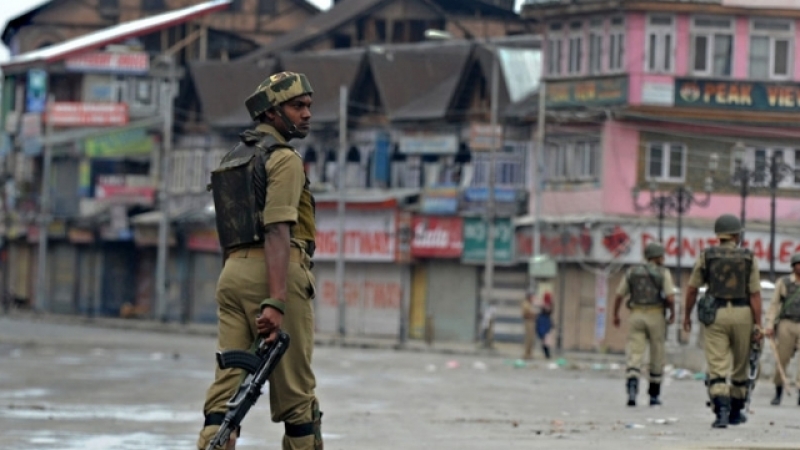
By Karen Rodman
August 5 marked four years since Indian Prime Minister Narendra Modi’s Hindu supremacist government commenced a new era of escalated repression targeting the Kashmiri people.
His government arbitrarily revoked Articles 370 and 35A of the Indian constitution, which specifically related to the rights of the people of Jammu & Kashmir.
Then the military instigated a protracted lockdown, blocking internet and phone communications for many months.
Article 370 was supposed to be a placeholder until Kashmiris exercised their legal right to self-determination.
India had previously acknowledged that right, even at the UN Security Council.
The Council had first explicitly recognized Kashmiris’ right to self-determination in 1948, through Resolution 47.
The UN still continues to recognize that right.
Article 35A protected important British-era laws that were intended to empower locals, preserve unique cultures and communities in Jammu & Kashmir, and preserve the cultural and sociological integrity of their indigenous communities.
Then on March 31, 2020, while the world was focused on the early days of the COVID-19 pandemic, Modi introduced a new Domicile Law.
This was a frontal attack on the rights protected by Article 35A.
It allowed non-locals to acquire property and settle in the state, enjoy preferential access to public employment, and enjoy preferential access to educational opportunities in local institutions.
This is settler-colonization. It accelerated a forced demographic change behind a veil of silence and lockdown.
Violations of international law
It was clear this would have grave implications for Kashmir’s future and demography.
Under the new law, Modi’s government issued three million domicile certificates to its own settler population in less than one year.
Then, credible information on the number of domicile certificates issued ceased to be publicly available.
However, last month, it was revealed that now over 6 million people have been given residency rights in Indian-occupied Kashmir.
The indigenous population of Jammu & Kashmir is around 12 million. These domicile certificates diminish the indigenous people of rights to immovable property, education, and access to public sector employment opportunities.
The Kashmir Law and Justice Project and others published a report that indicates the result is an “incentivized forced demographic change” with “both demographic flooding by Indian groups aligned with the Indian government and the forced outmigration of locals and particularly local Muslims.”
The report indicates that “these policies are part of a long-planned strategy to forcibly change the demographics of Indian-administered Kashmir (IAK) in favor of Hindus, a ‘final solution’ for IAK.”
Since Kashmir is an internationally disputed territory, the 2020 domicile law—which entails forced transfer of populations and settlement—contravenes international law.
Such population transfer is prohibited by Article 49 of the Fourth Geneva Convention.
It is condemned by the United Nations Sub-Commission on the Promotion and Protection of Human Rights.
Canada remains silent
Under Article 1 of the Fourth Geneva Convention, all high contracting parties, which include Canada, are required to take action to ensure respect for the convention “in all circumstances.”
Canada has a long history regarding Kashmir. In 1948, Canada’s UN representative Andrew McNaughton, as president of the UN Security Council (UNSC) at that time, took the lead in UNSC resolution 47.
It promised the people of Kashmir the plebiscite to determine their own future.
Canada’s first peacekeeping mission, even before the implementation of the UN official system, occurred in 1948 in Kashmir.
Then Canada fell silent about Kashmir for decades.
That was up until Canadian mainstream media started covering India’s occupation and tight military lockdown on Kashmir in August 2019.
Thousands of Canadians took to the streets.
Facing a fall election, federal candidates seemed to listen to the Kashmiri diaspora and its supporters as they called for Canada to take a stance.
Efforts continued to expose Canada’s silence on India’s colonization of Kashmir. Over 25 civil societies, including rabble.ca, sponsored a webinar.
In the fall of 2020, three parliamentary petitions were presented, which was the first time “the Kashmir issue” had been mentioned in Canadian parliament for almost 20 years.
But the response failed to address the concerns raised.
Some efforts were made in the 2021 federal election to bring Kashmir to the attention of all parties and candidates – the Bloc Québécois said they would submit a motion to the House of Commons to make the Modi government backtrack on all its violations related to Kashmir – but they have gone silent ever since.
Obligation unfulfilled, 75 years later
Now four years later, the nearly 6,000 Kashmiri diaspora in Canada continue to wonder when the Canadian government will act on their concerns.
There is no more mainstream media attention.
Civil society is not aware that Indian authorities continue to commit grave human rights violations, with Indian forces having killed at least 17 people in IAK in June alone.
Domiciling six million non-locals is systematically dispossessing indigenous Kashmiri residents.
Canada maintains that it supports international law, human rights and the rule of law.
But it continues to be silent about India’s violations against the indigenous Kashmiri people.
They have now been waiting three-quarters of a century for the right to a plebiscite that the international community, led by Canada, promised to them.
Karen Rodman is founder and director of JustPeace Advocates, a Canadian human rights organization.
This article was published in rabble.ca on August 9 and has been reproduced with its permission. https://rabble.ca/human-rights/india-administered-kashmir-four-years-later/
